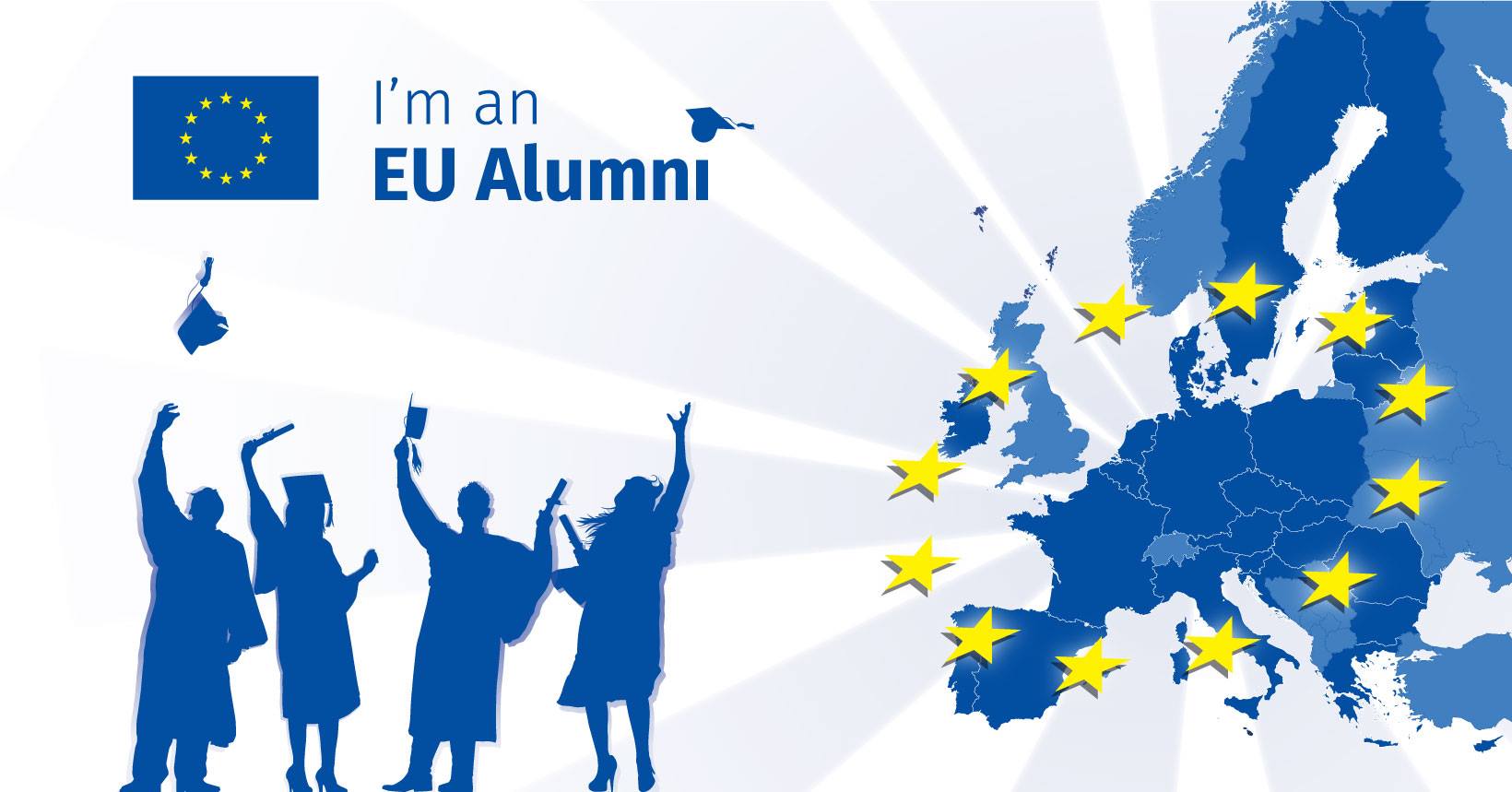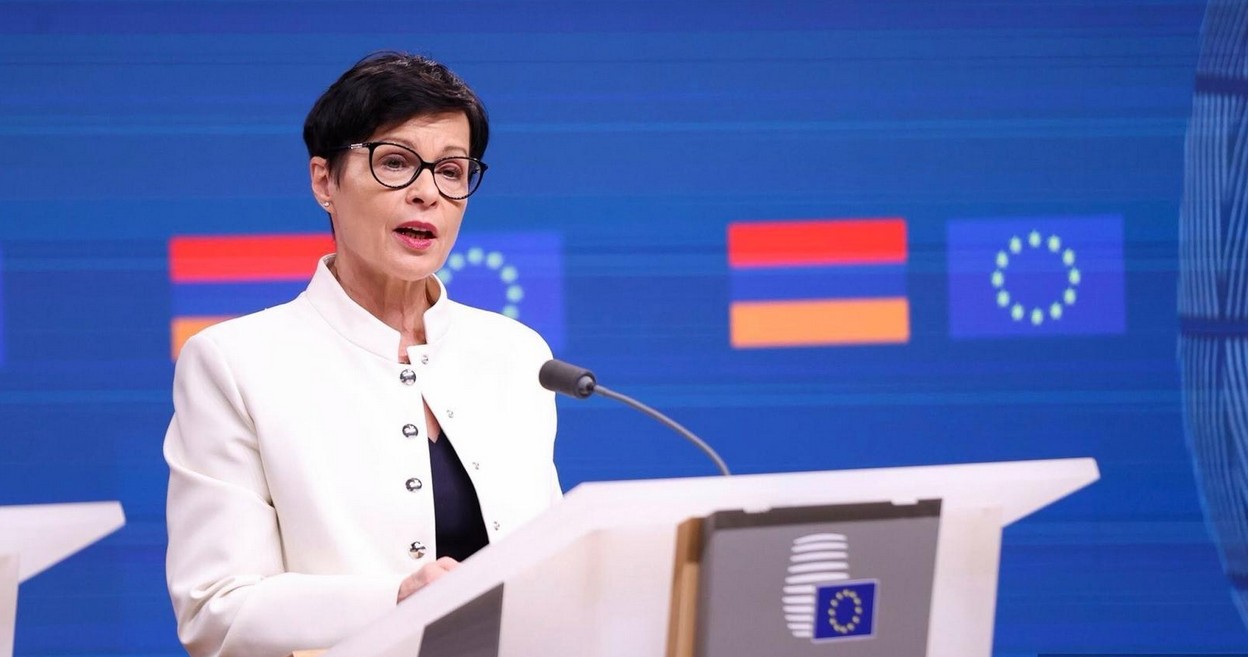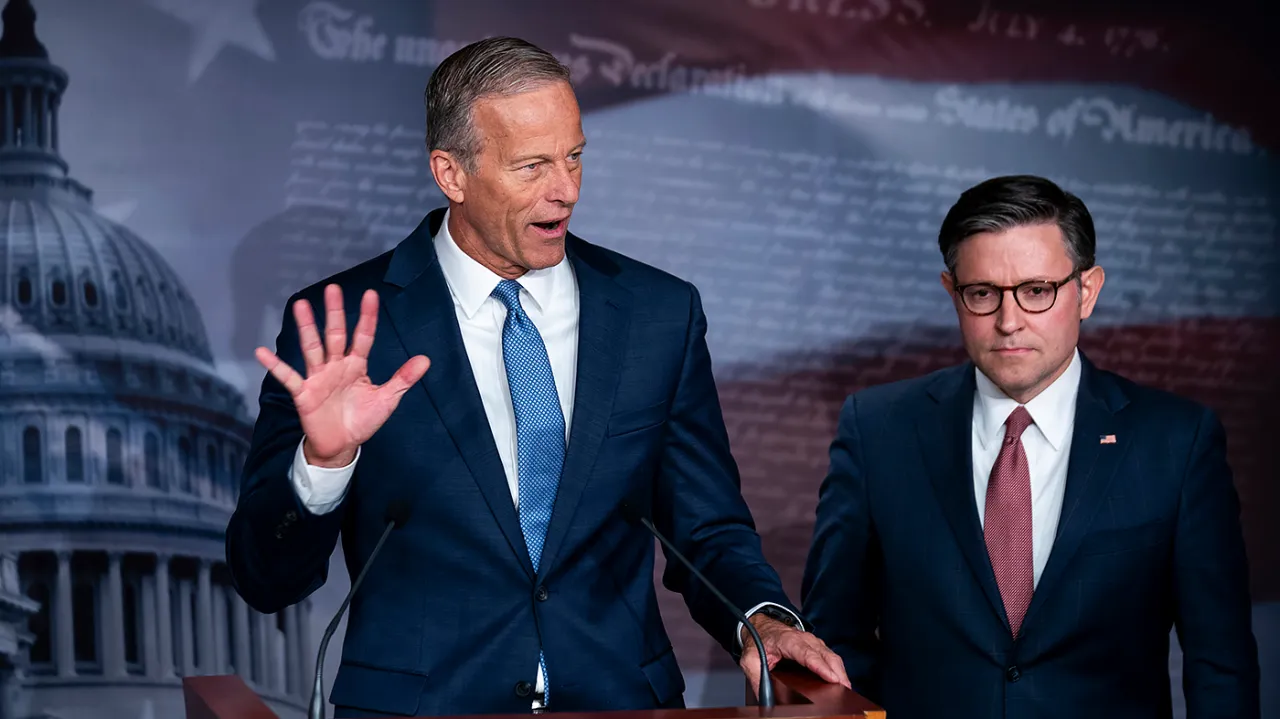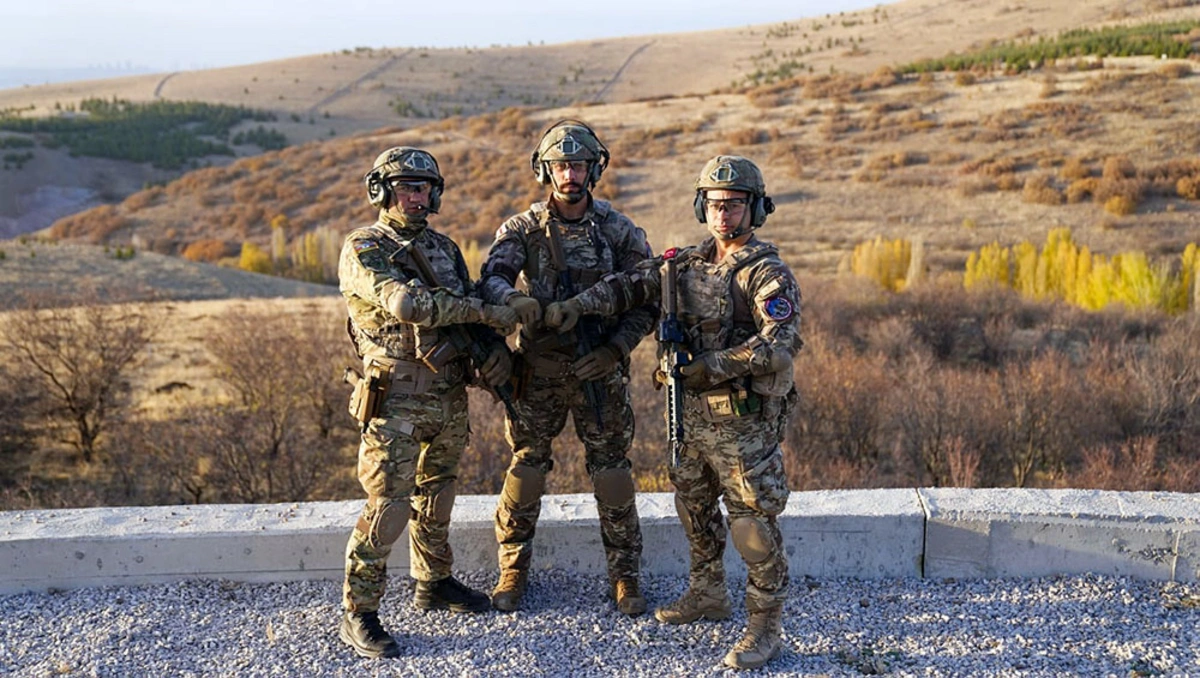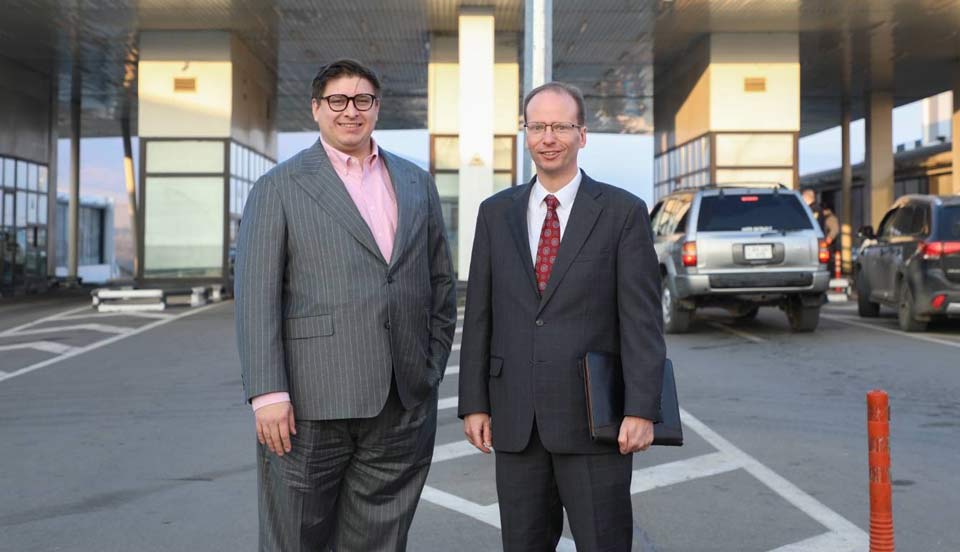As part of a regional tour, Iranian Foreign Minister Javad Zarif is visiting Tbilisi. Prior to that, he paid a visit to Azerbaijan, Moscow and Armenia.
At a meeting in Moscow, the foreign ministers discussed issues of bilateral Russian-Iranian cooperation, as well as issues on the international agenda, including the situation in the Persian Gulf, the resumption of negotiations on the JCPOA nuclear deal and the situation around Nagorno-Karabakh.
Relations between Moscow and Tehran will not depend on the ‘whims of the United States, which is trying to harm the partnership between the two countries by imposing illegal sanctions. Our relations are developing based on the interests of the two countries and two peoples, and we build our plans without looking back to any third party," Lavrov said during a joint conference with his Iranian counterpart, Mohammad Javad Zarif.
It should be noted as well that during his visit to Moscow, the Iranian Foreign Minister expressed his desire to start negotiations with the new US President on the renewal of the nuclear agreement. Javad Zarif urged the United States to lift sanctions against Iran and resume talks. Lavrov said at the meeting that the rescue of the nuclear deal is one of the most pressing issues, and Russia and Iran are interested in its full implementation.
According to Iran’s top diplomat, the Nagorno-Karabakh conflict is Tehran and Moscow's concern.
We thank Russia for a Russian-brokered ceasefire deal, which ‘led to a ceasefire and a cessation of hostilities in Nagorno Karabakh, and hope that this agreement will lead to the establishment of lasting peace and friendship in the Caucasus region’, Zarif said
During a visit to Baku on January 25, the Iranian Foreign Minister told Azerbaijani media that under his regional tour he was going to discuss the initiative to create a 3 + 3 format platform for six countries for regional peace and development cooperation. The six-nation initiative includes Iran, Russia, Turkey, Azerbaijan, Georgia and Armenia.
„I held extensive and very fruitful conversations in Baku on bilateral ties and regional cooperation’. The key to sustainable peace’ lies in ‘inclusive regional arrangement, which include ‘transit corridors benefiting all’, Zarif wrote on Twitter.
The initiative to create a ‘Six Platform’ in the Caucasus Region was put forward by the President of Turkey in December 2020 after a meeting with the President of Azerbaijan.
„We talked with Azerbaijan about the possibility of creating a platform with the participation of six countries - Azerbaijan, Turkey, Russia, Iran, Georgia and Armenia. This will be a good cooperation for the development of the region“, - Turkish President Recep Tayyip Erdogan told a news conference in Baku.
Before arriving in Georgia on January 27, after a visit to Yerevan, the Iranian diplomat tweeted that they had ‘agreed on further strengthening bilateral ties and regional cooperation’ with Armenia ‘turning old rivalries into newer synergies’. However, Zarif did not specify whether he meant ‘a six-country platform“.
What does a six-country regional cooperation platform mean, and whether it is in the interests of Georgia to create any kind of alliance with Iran, Russia and Turkey? Europetime spoke to Zurab Batiashvili, Research Fellow at Georgian Foundation for Strategy and International Studies about this issue.
According to the analyst, after a new war in Karabakh, Iran would like to take part in a new security structure, which, in their view, can be formed around the Caucasus.
However, there are several problems here. As for the 3 + 3 alliance plan, the first problem is that these countries, in many cases, do not have diplomatic relations with each other. For example, Georgia does not have diplomatic relations with Russia due to the occupation of our territories.
Armenia also does not have diplomatic relations with Turkey and Azerbaijan. In this respect, Iran is the only country that maintains diplomatic relations with every country in the region. This is due to the fact that, unlike Russia, Iran is relatively less involved in the Caucasus.
That’s why Iran is now trying to take advantage of the situation and talks about economic relations. However, there are serious problems in terms of the economic union as well, as the US has imposed very tough sanctions against Iran’, Zurab Batiashvili told Europetime.
According to the analyst, it is hard to imagine Iran economically cooperating with the three Caucasian states, when sanctions do not even allow it to transfer funds, in fact, the sanctions do not allow to develop trade relations with Iran. According to Zurab Batiashvili, this is a problematic issue that can really be resolved only if Iran-United States relations are settled.
„Therefore, I think that the creation of a 3 + 3 union of these 6 countries is more at the level of Iran's desire, and it won’t actually be able to do anything. As for the visit of the Iranian Foreign Minister to Georgia, I do not think that the very fact of the visit will displease the American side. Such visits are not sanctioned. Meetings and negotiations with all the neighbors are necessary, because they are in your region, and besides, there are many issues related to transit that need to be discussed’, - Zurab Batiashvili said.
In December 2020, Georgian President Salome Zurabishvili mentioned the Caucasus Platform while speaking about the Karabakh conflict and regional security at the opening ceremony of the annual meeting of the heads of Georgian diplomatic missions abroad – ‘Ambassadors’ Conference 2020’.
„The prosperity and development of the whole region depend on peace and stability. At the same time, we know that everyone was involved in achieving this goal in resolving Nagorno-Karabakh conflict, all the facilitators, except for us. It is very sad. The historical role of Georgia in the Caucasus has always been and still is an opportunity to bring everyone together. That is why I am deeply convinced that Georgia can be neither passive nor secondary to the initiative of the Caucasus Platform,’ - Salome Zourabichvili said on December 21, 2020. The President of Turkey announced the ‘Caucasian Platform’ initiative on December 10, 2020.
The statement of the President of Georgia was followed by a critical assessment by former US Ambassador to Georgia Ian Kelly.
„How can a Georgian President congratulate an agreement that locks in another Russian occupation in the Caucasus and locks out the West?’ - Ian Kelly posed on his Twitter account.
When asked by Europetime, whether Iran's proposal to create a union of six countries is in the interests of Georgia and its Western partners, Zurab Batiashvili, Fellow Researcher at the Georgian Foundation for Strategic and International Studies answered that it is in the interests of neither Western partners, nor of Georgia.
„Any format of the union, where our western partners are not represented, is not favorable for Georgia first of all. Because we have so many times witnessed what it means to stay face-to-face with Russia. In my opinion, this alliance is not in Russia's interests either, because Russia does not want to share its privileged status, that every state in the Caucasus is trying to achieve. Consequently, it is not in Russia's interests to increase the influence of Iran and Turkey in the Caucasus region. As for the other states, cooperation with Iran will be problematic for them as well. Sanctions do not allow any deeper cooperation with Iran. ‘Therefore, the creation of any union in the Caucasus region with the involvement of Iran is problematic and less feasible“, - Zurab Batiashvili said.
Ben Hodges, Former Commanding General of US Army Europe, Pershing Chair in Strategic Studies, at Center for European Policy Analysis spoke to Europetime about Mohamed Javad Zarif's visit a few days ago.
I am convinced of one thing – ‘the United States needs a strategy for how it looks at the entire greater Black Sea region, which demonstrates US commitment to stability there, including in the South…Personally, I do not see any good news coming from increased attention and presence by the Kremlin and Iran in the area.’
The Iranian diplomat will leave Georgia on January 28.


